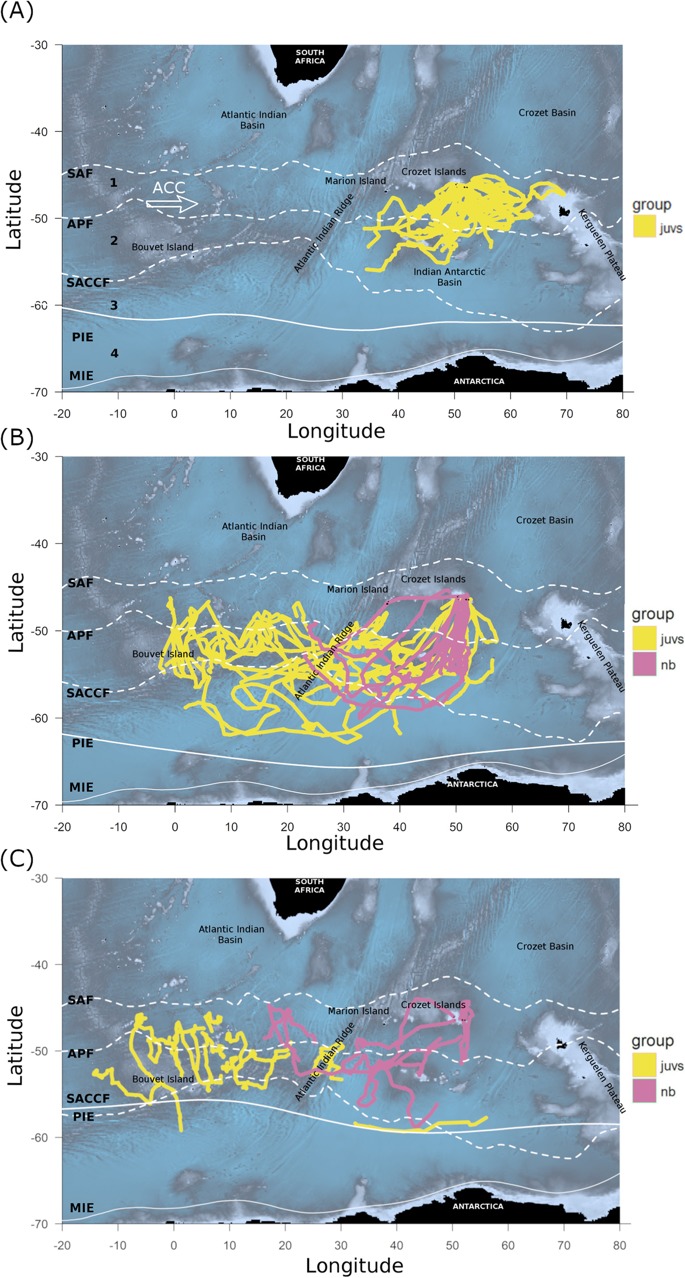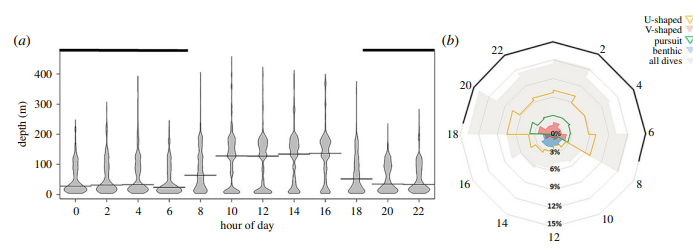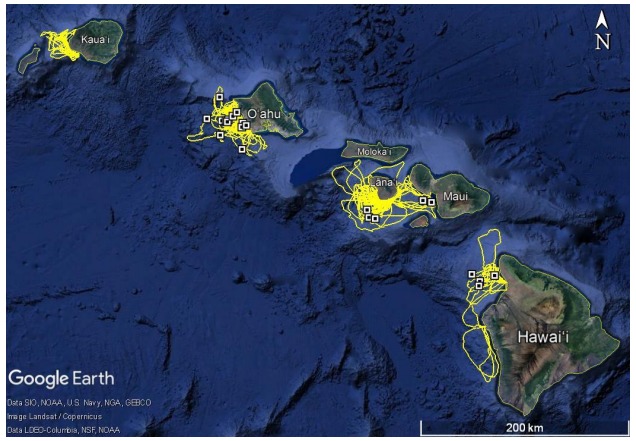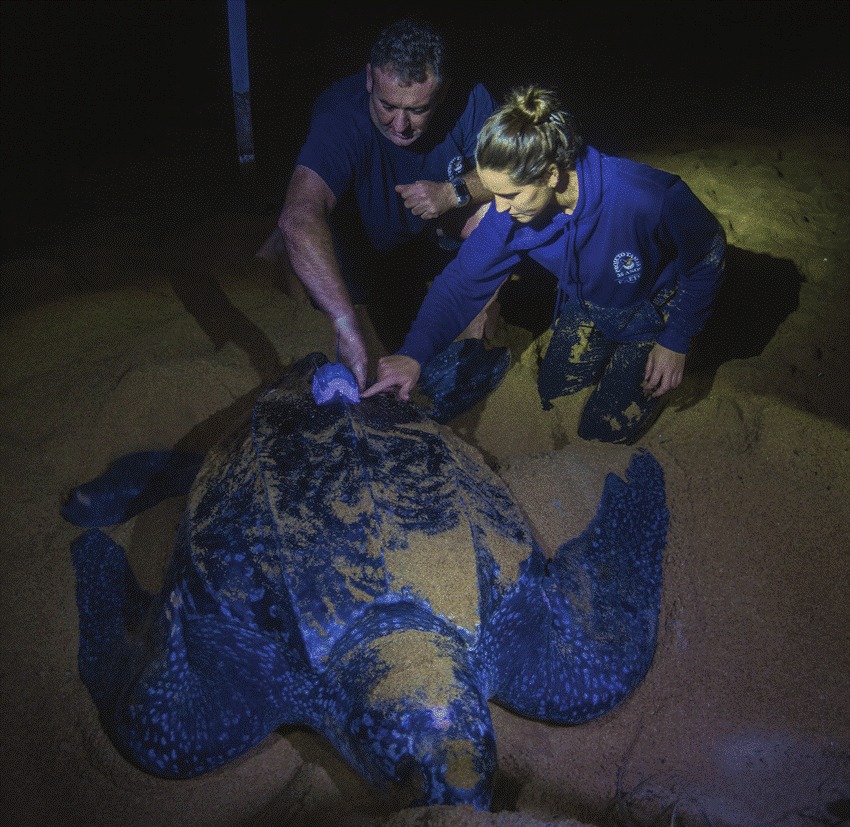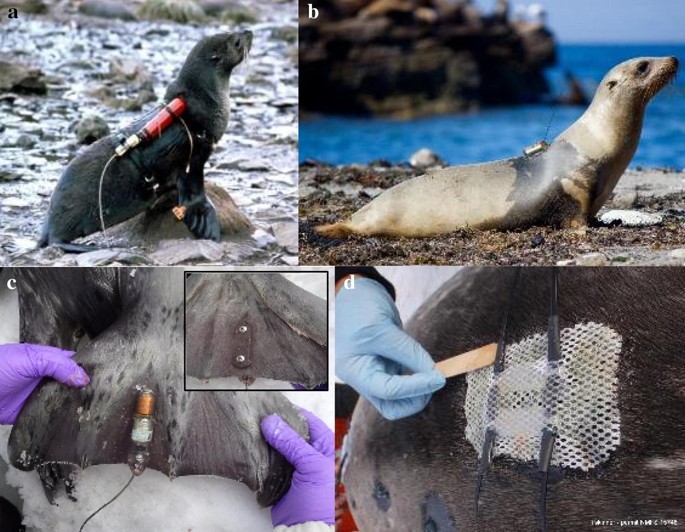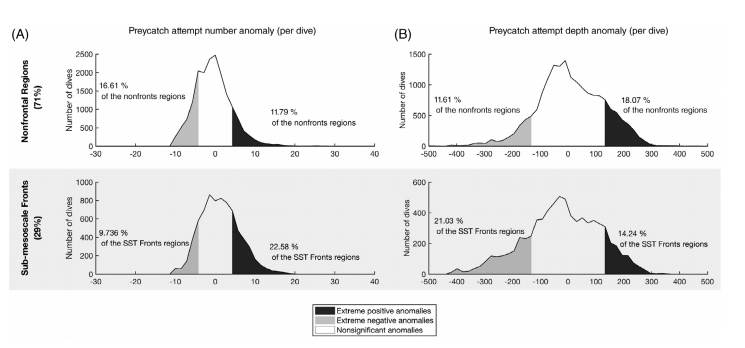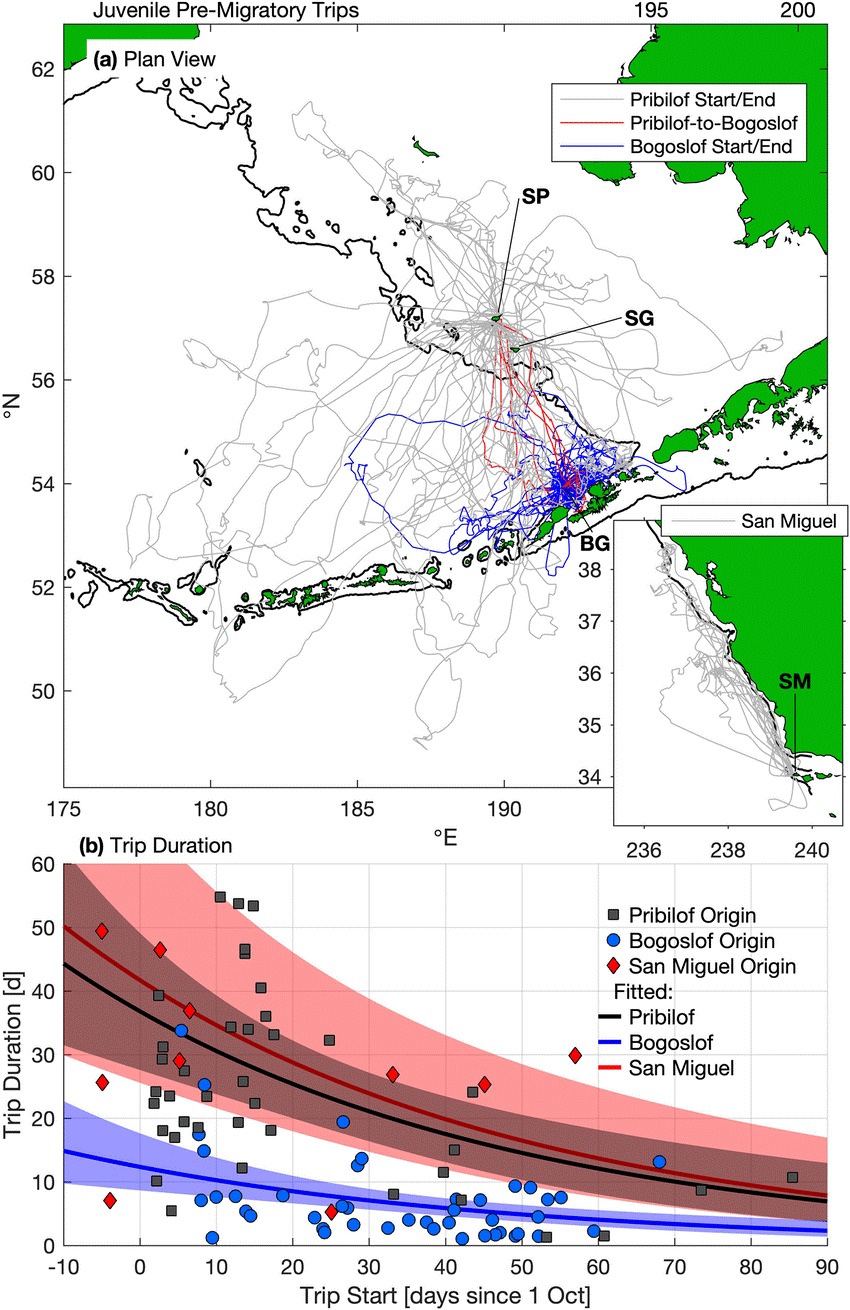Exploration During Early Life: Distribution, Habitat and Orientation Preferences in Juvenile King Penguins
Over two years, scientists tracked 17 juvenile king penguins in the Crozet Archipelago using Wildlife Computers SPLASH tags. They found that juveniles and non-breeding adults traveled similar routes but when leaving later in the season, the range area was smaller. They also found that foraging behavior...

